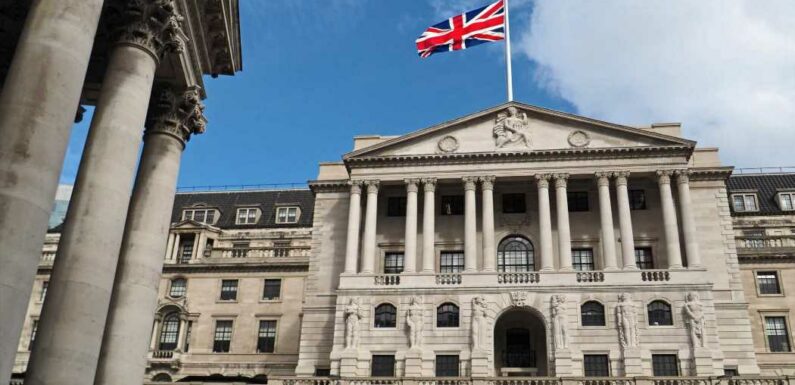
THE BANK of England has unveiled the biggest interest rate rise since the 1980s.
The central bank has increased rates to 3% as it tries to control the runaway inflation which is battering households.
The Bank of England (BoE) base rate, which has been reviewed today, impacts high street bank interest rates.
Interest is a fee you pay for borrowing money and is what banks pay you for saving with them.
The rate changes will affect you if you've got debt, including a mortgage, or a savings account.
Mortgages are decided against the BoE base rate.
READ MORE IN MONEY
First-time buyer mortgages slashed by more than half – what to do now
I’m a mortgage expert – how the mini Budget U-turn could affect interest rates
A hike in interest rates may be good for savers but bad for borrowers.
For example, if you saved £100 with a 1% interest rate, you would have £101 by the end of the year.
But if you borrowed £100 at the same rate, you would pay back a total of £101.
We explain what the base rate is and how the increase will impact your finances.
What is the Bank of England base rate?
The BoE base rate is sometimes just known as Bank Rate.
Most read in Money
Millions of mortgage bills to rise as Bank of England hikes rates again to 3%
Celebrations makes major change to tubs – and it will divide all chocolate fans
Brits baffled by new build’s security gate – can you spot the massive flaw?
Exact date millions will get £324 cost of living payment direct to bank accounts
It influences how much interest banks will charge on loans or pay out for savings.
The Bank Rate is set by the BoE's Monetary Policy Committee who met today.
The new BoE base rate is 3% – up from 2.25%.
When the BoE lowers interest rates consumers tend to increase spending, while lowering them has the opposite effect.
Increasing interest rates is like a lever for slowing down inflation – but it means the cost of borrowing increases.
This means that consumers and businesses have less money to spend, and in theory, as demand for goods and services fall, so should prices.
Inflation is currently at 10.1%, with families struggling to cope with spiralling bills and shop prices.
However, reduced spending can cause businesses to fail and people to lose their jobs.
Why are interest rates going up?
The rising cost of living has led to the BoE increasing the Bank Rate.
The committee has upped the rate following its previous three meetings to try and curb inflation.
It is the eighth time in a row that the Bank has hiked interest rates.
Less than a year ago the rate was 0.1%.
This will have a knock on effect on the rates set by high street banks.
Banks don't have to adapt their own interest rates on saving and borrowing following the announcement, but they usually do.
But interest rates might not change by the same amount at the Bank Rate.
That's because banks need to pay less on savings than they make on lending.
How will the changes impact my finances?
The base rate increase could impact your finances.
How the changes affect you will depend on your personal circumstances.
Many homeowners would pay more on their mortgage repayments if interest rates go up.
If you're on a fixed-rate mortgage, the increase won't immediately affect your payments.
But other mortgages, such as a tracker or standard variable rate mortgage, could be impacted straight away.
Tracker mortgages are linked to the Bank of England base rate – which means you will see an immediate impact on your mortgage repayments if rates go up.
Homeowners on variable rate mortgages wouldn't see their repayments go up straight away, but they would likely increase shortly after interest rates are hiked.
Your bank should tell you about a change to your SVR before it goes up.
SVRs are generally higher than fixed rate deals, so if you're on one then you're likely already be paying more than you need to already.
Moving to a fixed rate mortgage could help you avoid future rises by locking in a lower rate.
You might find that the interest rate on your credit card or overdraft will rise along with a Bank of England rate hike.
Many big banks – like Lloyds Bank, MBNA, Halifax and Barclaycard – link their credit card rates directly to the Bank of England base rate.
That means their credit card rates will hike automatically in line with any changes to interest rates – but you'll be given notice before this happens.
You can check the terms and conditions of your credit card to see if the rate can go up when the base rate does.
Read More on The Sun
I’m a tatted up dad & took my baby to get his first ‘inking’ – people slam me
I’m a savvy mum…I’ve got my son a huge Christmas present haul with 50p bargains
Rising Bank of England rates could have a knock-on effect on how much tax you are paying.
That's because the government would have to pay more for its borrowing.
Source: Read Full Article








